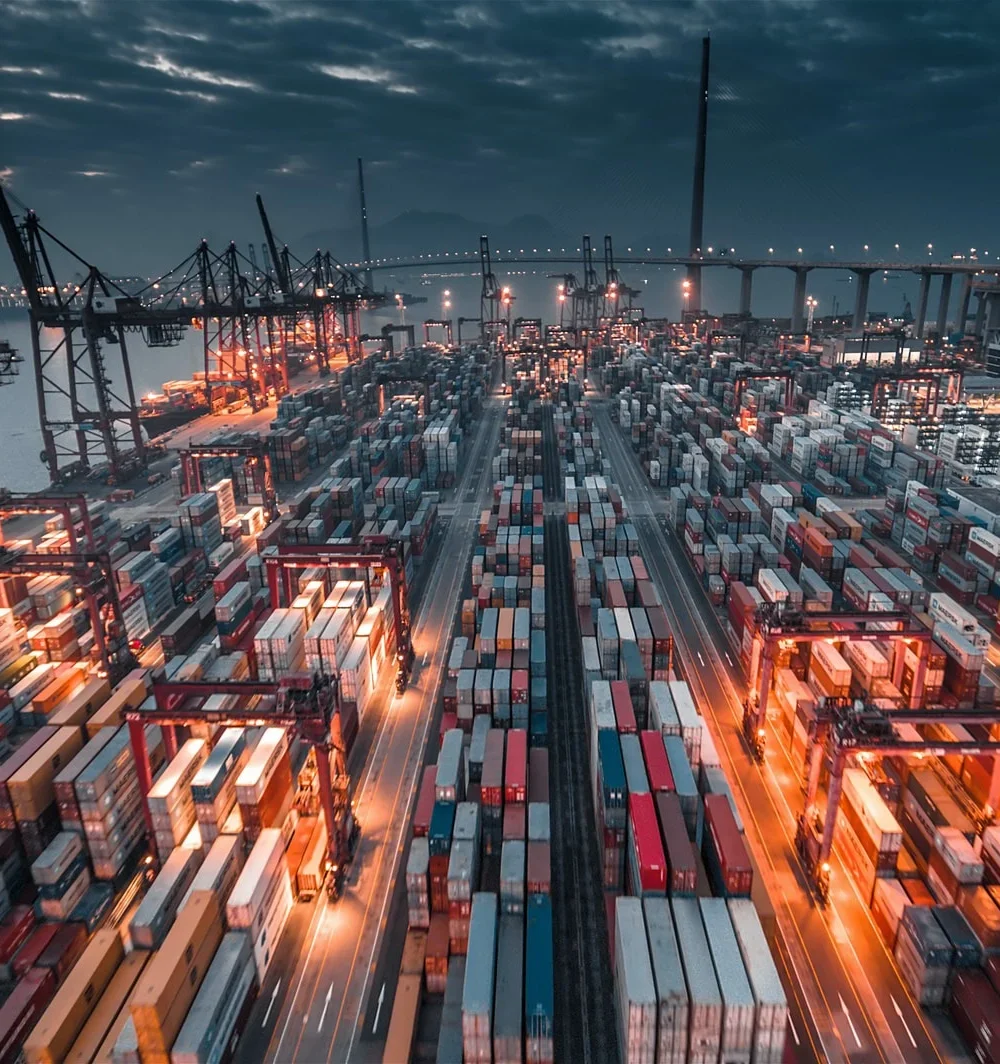As we look
towards 2030, the UK metals industry is poised to undergo a profound
transformation, driven by a convergence of technological innovation,
sustainability goals, and evolving market demands. This dynamic sector, which
serves as a backbone for industries such as construction, automotive,
aerospace, and renewable energy, is adapting to challenges and opportunities
presented by global and domestic trends. For platforms like MetaMetalX, staying
ahead of these trends is essential for driving growth, fostering innovation,
and maintaining competitiveness in an increasingly interconnected world.
The State of the UK Metals
Industry in 2030
By 2030, the UK
metals industry is expected to be more digitised, sustainable, and globally
integrated than ever before. Key drivers such as advancements in technology,
the push towards net-zero emissions, and growing demand for high-performance
materials will shape the future of this sector. Understanding these trends is crucial
for stakeholders looking to thrive in a rapidly evolving landscape.
Key Trends Shaping the UK
Metals Industry in 2030
1.
Sustainability and Circular Economy Practices
Sustainability
is at the forefront of the metals industry’s transformation, with increasing
pressure to reduce carbon emissions and adopt circular economy principles. By
2030, the following practices are expected to dominate:
Recycling and Re-Use:
Recycling rates for metals such as steel, aluminium, and copper will
continue to rise as businesses and governments prioritise resource
efficiency. Platforms like MetaMetalX will play a key role in facilitating
the trading of recycled metals and ensuring traceability.
Energy Efficiency:
The adoption of energy-efficient production technologies will help reduce
emissions and lower costs.
Closed-Loop Supply Chains:
Collaboration across the value chain will enable the reintroduction of
waste and by-products into production cycles, minimising environmental
impact.
2. Digital
Transformation and Smart Technologies
The digital
revolution is reshaping the metals industry, with smart technologies enabling
greater efficiency, transparency, and innovation. By 2030, we can expect:
Blockchain for Traceability:
Blockchain technology will ensure the authenticity and provenance of
metals, addressing concerns related to ethical sourcing and compliance.
AI-Driven Insights:
Artificial intelligence will provide predictive analytics for market
trends, inventory management, and supply chain optimisation.
IoT Integration:
Internet of Things (IoT) devices will enhance supply chain visibility,
allowing real-time tracking of shipments and monitoring of production
processes.
MetaMetalX is
at the forefront of this transformation, offering advanced digital solutions
that empower stakeholders to navigate a tech-driven marketplace.
3.
Decarbonisation and Green Steel Initiatives
Decarbonisation
is a critical goal for the UK metals industry as it aligns with the
government’s commitment to achieving net-zero emissions by 2050. By 2030:
Green Steel Production:
Innovations such as hydrogen-based steelmaking and electric arc furnaces
will replace traditional coal-based methods, reducing carbon emissions.
Renewable Energy Integration:
Metal producers will increasingly rely on renewable energy sources to
power their operations, further lowering their environmental footprint.
Carbon Capture and Storage (CCS):
CCS technologies will be widely adopted to mitigate emissions from
existing production processes.
These
initiatives not only support sustainability goals but also enhance the
industry’s competitiveness in global markets.
4. Growing
Demand for High-Performance Materials
As industries
such as aerospace, automotive, and renewable energy continue to evolve, the
demand for high-performance materials will rise. Key trends include:
Lightweight Alloys:
The push for energy efficiency in transportation will drive demand for
lightweight materials like aluminium and titanium alloys.
Advanced Composites:
High-strength and corrosion-resistant composites will become essential for
applications in extreme environments.
Rare Earth Metals:
The transition to renewable energy technologies and electric vehicles will
increase the demand for rare earth elements used in batteries and magnets.
MetaMetalX’s
platform facilitates the trading of these specialised materials, connecting
suppliers with global buyers and fostering innovation in material applications.
5. Resilience
and Supply Chain Optimisation
The disruptions
caused by the COVID-19 pandemic and geopolitical tensions have highlighted the
importance of resilient and efficient supply chains. By 2030:
Diversified Supply Chains:
Companies will reduce reliance on single suppliers or regions, ensuring
stability and continuity in operations.
Real-Time Data Sharing:
Digital platforms will enable real-time sharing of supply chain data,
improving coordination and decision-making.
Automation: Advanced
robotics and automated systems will streamline logistics, reducing costs
and enhancing productivity.
Platforms like
MetaMetalX are crucial for creating transparent and resilient supply chains,
helping businesses adapt to changing market conditions.
6. Expansion
into Emerging Markets
Emerging
markets in Asia, Africa, and South America are becoming significant players in
the global metals industry. By 2030:
Infrastructure Investments:
Large-scale infrastructure projects in these regions will drive demand for
construction materials.
Urbanisation: Rapid
urban growth will increase the need for metals used in housing,
transportation, and energy systems.
Trade Partnerships:
Strengthening trade relationships with emerging markets will create new
opportunities for UK metal exporters.
MetaMetalX’s
global reach and digital tools enable businesses to access these markets
seamlessly, fostering international collaboration and growth.
7. Workforce
Transformation
The evolving
metals industry will require a workforce equipped with new skills and
expertise. By 2030:
Upskilling and Training:
Businesses will invest in training programs to equip employees with skills
in digital technologies, sustainability practices, and advanced manufacturing
techniques.
Diversity and Inclusion:
Efforts to promote diversity and inclusion will create a more dynamic and
innovative workforce.
Automation and AI:
Automation will reduce the reliance on manual labour, while AI-driven
tools will support decision-making and operational efficiency.
Challenges Facing the UK
Metals Industry in 2030
While the
future holds immense potential, the UK metals industry must address several
challenges to realise its vision for 2030:
Price Volatility:
Fluctuations in metal prices due to economic and geopolitical factors
remain a significant concern.
Regulatory Compliance:
Navigating complex environmental and trade regulations will require robust
compliance strategies.
Technological Integration:
Adopting and integrating advanced technologies will require significant
investment and expertise.
Global Competition:
Competing with low-cost producers in Asia and other regions will
necessitate innovation and efficiency.
How MetaMetalX is Shaping
the Future
MetaMetalX is
playing a pivotal role in shaping the future of the UK metals industry by
addressing its challenges and leveraging emerging trends. Here’s how:
Digital Solutions:
The platform’s AI-powered tools, blockchain integration, and IoT
capabilities enable businesses to navigate a tech-driven market.
Sustainability Initiatives:
MetaMetalX supports circular economy practices and decarbonisation
efforts, aligning with the industry’s sustainability goals.
Global Connectivity:
By connecting stakeholders across borders, MetaMetalX fosters
international collaboration and expands market opportunities.
Resilience and Transparency:
The platform enhances supply chain visibility and efficiency, helping
businesses adapt to disruptions and maintain continuity.
Conclusion
The UK metals
industry in 2030 will be defined by its ability to embrace innovation,
sustainability, and global collaboration. By understanding and adapting to key
trends such as digital transformation, decarbonisation, and the demand for
high-performance materials, stakeholders can unlock new opportunities and drive
long-term growth.
Platforms like
MetaMetalX are at the forefront of this evolution, providing the tools and
insights needed to navigate a rapidly changing landscape. As the industry
continues to evolve, MetaMetalX’s commitment to innovation and sustainability
will play a crucial role in shaping a brighter and more competitive future for
the UK metals industry.
Trends Shaping the UK Metals Industry in 2030
0
Comments
Likes
Clear Filters





